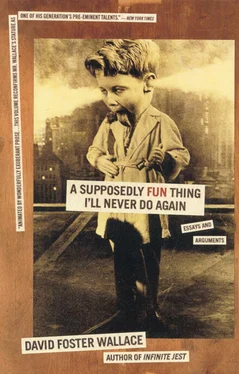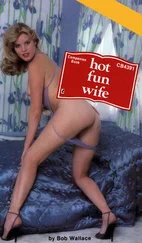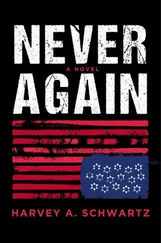If you’re not a critical-theory jockey, then to appreciate why the metaphysical viability of the author is a big deal you have to recognize the difference between a writer — the person whose choices and actions account for a text’s features — and an author — the entity whose intentions are taken to be responsible for a text’s meaning. Hix, paraphrasing the ever-limpid Alexander Nehamas, uses the old saw about monkeys and typewriters to illustrate the distinction: “It is surely possible, though obviously unlikely, that a thousand monkeys at a thousand typewriters could by sheer chance produce an encyclopedia. If they did, they would be able to account for all the features of the text: Everything in the text was put there… by monkeys at Smith-Coronas. But… there would be no way to account for the meaning of the text’s features, because… the monkeys could not have meant anything by their typing.” Authors are monkeys who mean.
And for Romantic and early-twentieth-century critics, textual interpretation was author-based. For Wordsworth, the critic regards a text as the creative instantiation of a writer’s very self. Rather more clinically, I. A. Richards saw criticism as all and only an effort to nail down the “relevant mental condition” of a text’s creator. Axiomatic for both schools was the idea of a real author, an entity for whose definition most critics credit Hobbes’s Leviathan, which describes real authors as persons who, first, accept responsibility for a text and, second, “own” that text, i.e. retain the right to determine its meaning. It’s just this definition of “author” that Barthes in ’68 was trying to refute, arguing with respect to the first criterion that a writer cannot determine his text’s consequences enough to be really responsible (Salinger wasn’t hauled into court as an accessory when John Lennon was shot), and with respect to the second that the writer’s not the text’s owner in Hobbes’s sense because it is really critical readers who decide and thus determine what a piece of writing means.
It’s Barthes’ second argument here that’s the real poststructural death certificate, and this line is really just an involution of the New Critics’ WWII-era reaction against Richards and the Romantics. The New Critics, rather level-headedly at first, sought to dethrone the author by attacking what they called “the Intentional Fallacy.” Writers are sometimes wrong about what their texts mean, or sometimes have no idea what they really mean. Sometimes the text’s meaning even changes for the writer. It doesn’t matter what the writer means, basically, for the New Critics; it matters only what the text says. This critical overthrow of creative intent set the stage for the poststructural show that opened a couple decades later. The deconstructionists (“deconstructionist” and “poststructuralist” mean the same thing, by the way: “poststructuralist” is what you call a deconstructionist who doesn’t want to be called a deconstructionist), explicitly following Husserl and Brentano and Heidegger the same way the New Critics had co-opted Hegel, see the debate over the ownership of meaning as a skirmish in a larger war in Western philosophy over the idea that presence and unity are ontologically prior to expression. There’s been this longstanding deluded presumption, they think, that if there is an utterance then there must exist a unified, efficacious presence that causes and owns that utterance. The poststructuralists attack what they see as a post-Platonic prejudice in favor of presence over absence and speech over writing. We tend to trust speech over writing because of the immediacy of the speaker: he’s right there, and we can grab him by the lapels and look into his face and figure out just exactly what one single thing he means. But the reason why the poststructuralists are in the literary theory business at all is that they see writing, not speech, as more faithful to the metaphysics of true expression. For Barthes, Derrida, and Foucault, writing is a better animal than speech because it is iterable; it is iterable because it is abstract; and it is abstract because it is a function not of presence but of absence: the reader’s absent when the writer’s writing, and the writer’s absent when the reader’s reading.
For the deconstructionist, then, a writer’s circumstances and intentions are indeed a part of the “context” of a text, but context imposes no real cinctures on the text’s meaning, because meaning in language requires a cultivation of absence rather than presence, involves not the imposition but the erasure of consciousness. This is so because these guys — Derrida following Heidegger and Barthes Mallarmé and Foucault God knows who — see literary language as not a tool but an environment. A writer does not wield language; he is subsumed in it. Language speaks us; writing writes; etc. Hix makes little mention of Heidegger’s Poetry, Language, Thought or Derrida’s Margins of Philosophy, where all this stuff is set out most clearly, but he does quote enough Barthes—“To write is… to reach that point where only language acts, performs,’ and not me’”—so you get the idea that author-as-owner is not just superfluous but contradictory, and enough Foucault—“The writing of our day has freed itself from the necessity of ‘expression’; [it is] an interplay of signs, regulated less by the content it signifies than by the very nature of the signifier”—so you can see that even the New Critics’ Holy Text disappears as the unitary lodestone of meaning and value. For Hix’s teachers, trying to attribute writing’s meaning to a static text or a human author is like trying to knit your own body, your own needles . Hix has an even better sartorial image: “Previously, the text was a cloth to be unraveled by the reader; if the cloth were unwound all the way, the reader would find the author holding the other end. But Barthes makes the text a shroud, and no one, not even a corpse, is holding the other end.”
Hix himself is a good weaver; Morte d’Author is a tight piece of work. Its first half is a critical overview of some of the major positions on authorial vital signs. Not only is there Hobbes and Frye on what an author is, there’s Foucault v. Nehamas on just how to recognize what an author is, and Barthes v. William Gass on whether to even bother trying to find an author. There are also brief critical summaries of Derrida, Culler, Stecker, Booth, and Burke. Hix’s discussion isn’t comprehensive, quite: Heidegger and Hegel are scarcely mentioned, Husserl (a major influence on Derrida) is absent, as are such important contemporary figures in the debate as Stanley Cavell (whose Must We Mean What We Say? is at least as important to Hix’s subject as Booth’s Rhetoric of Fiction), Paul de Man, Edward Said, and Gayatri Spivak. And Hix’s analysis of the players he does cover suffers from the scholarly anality that’s so common to published dissertations, an obsession with the jots and tittles of making excruciatingly clear what he’s saying and where he’s going. Wearying t-crossings like “I will isolate three of his claims in particular, disagreeing with two of them and agreeing with the other,” and microprecise critiques like “Wimsatt and Beardsley’s error may be hidden behind the passive voice; Cain’s is hidden behind the present tense” make the reader wish Hix’s editor had helped him delete gestures that seem directed at thesis committees rather than paying customers.
Hix’s obsessive attention to detail is perhaps justified, though, by the fact that Morte d’ Author aims to be more than just a compendium of views on the dead-author controversy. Hix promulgates his own theory of authorship, one that he claims clears up the debate and lays the foundation for a more sophisticated approach to literary criticism in the wake of deconstructionism’s plumeocide. Though his solution to the problem isn’t the universal solvent he leads the reader to expect, his project is still a neat example of that modern commissure where Continental theory and analytic practice fuse. What Hix offers as a resolution to the debate is a combination of a Derridean metaphysics that rejects assumptions of unified causal presence and a Wittgensteinian analytic method of treating actual habits of discourse as a touchstone for figuring out what certain terms really mean and do.
Читать дальше












